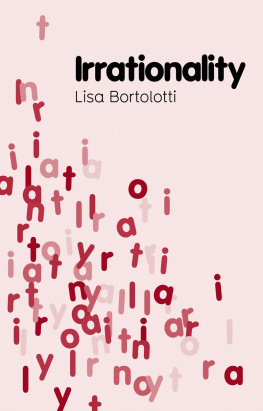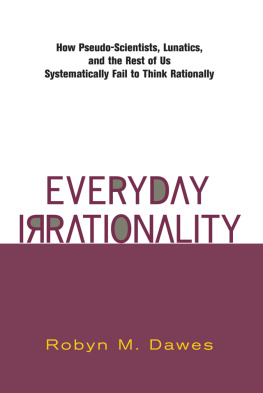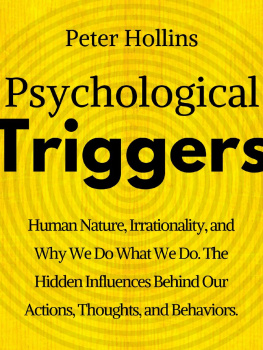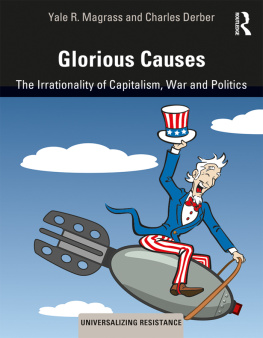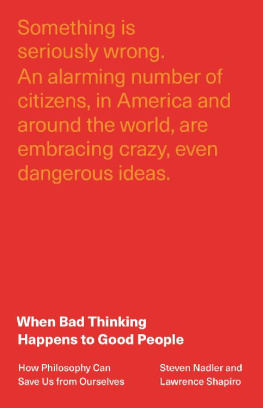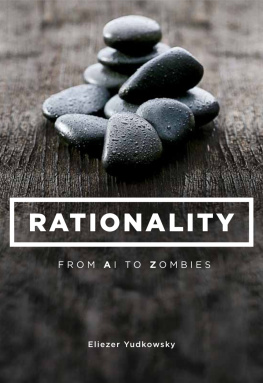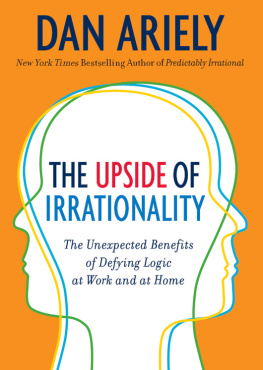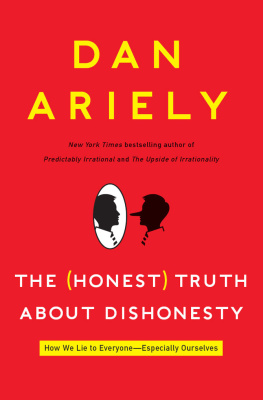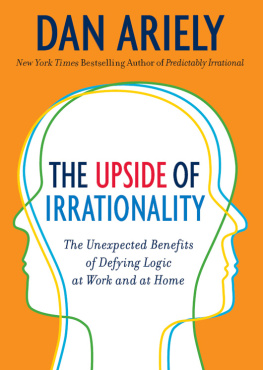Table of Contents
Guide
Pages
Key Concepts in Philosophy
Heather Battaly, Virtue
Joseph Keim Campbell, Free Will
Roy T. Cook, Paradoxes
Douglas Edwards, Properties
Bryan Frances, Disagreement
Douglas Kutach, Causation
Ian Evans and Nicolas D. Smith, Knowledge
Daniel Speak, The Problem of Evil
Joshua Weisberg, Consciousness
Chase Wrenn, Truth
Copyright Lisa Bortolotti 2015
The right of Lisa Bortolotti to be identified as Author of this Work has been asserted in accordance with the UK Copyright, Designs and Patents Act 1988.
First published in 2015 by Polity Press
Polity Press
65 Bridge Street
Cambridge CB2 1UR, UK
Polity Press
350 Main Street
Malden, MA 02148, USA
All rights reserved. Except for the quotation of short passages for the purpose of criticism and review, no part of this publication may be reproduced, stored in a retrieval system, or transmitted, in any form or by any means, electronic, mechanical, photocopying, recording or otherwise, without the prior permission of the publisher.
ISBN-13: 978-0-7456-4782-1
ISBN-13: 978-0-7456-4783-8(pb)
ISBN-13: 978-0-7456-8727-8 (epub)
ISBN-13: 978-0-7456-8726-1 (mobi)
A catalogue record for this book is available from the British Library.
Library of Congress Cataloging-in-Publication Data
Bortolotti, Lisa.
Irrationality / Lisa Bortolotti.
pages cm
Includes bibliographical references and index.
ISBN 978-0-7456-4782-1 (hardback) ISBN 978-0-7456-4783-8 (pbk.) 1. Practical reason. I. Title.
BC177.B595 2014
128.4dc23
2014013539
The publisher has used its best endeavours to ensure that the URLs for external websites referred to in this book are correct and active at the time of going to press. However, the publisher has no responsibility for the websites and can make no guarantee that a site will remain live or that the content is or will remain appropriate.
Every effort has been made to trace all copyright holders, but if any have been inadvertently overlooked the publisher will be pleased to include any necessary credits in any subsequent reprint or edition.
For further information on Polity, visit our website: politybooks.com
For Giulio Paternoster and Anna Bonaria Mameli
Acknowledgements
I am grateful for the incredible support that I received from Emma Hutchinson, Pascal Porcheron and Sarah Lambert at Polity Press. They have been very patient and very understanding.
I acknowledge the intellectual support of the Philosophy of Health and Happiness research cluster in the School of Philosophy, Theology and Religion at the University of Birmingham. The many conversations I had with students and colleagues shaped my views about rationality and human agency, and greatly inspired me. I would also like to thank Benjamin Costello for proofreading the whole manuscript and providing insightful comments.
Some of the arguments I discuss in the book have been developed in previous work, either single-authored or authored together with invaluable collaborators. I would like to thank Jillian Craigie, Matteo Mameli, Rochelle Cox, Amanda Barnier, Bert Heinrichs and Matthew Broome for working with me and for their precious insights into many of the philosophical issues surrounding irrationality.
Finally, I acknowledge the support of an Arts and Humanities Research Council Fellowship (The Epistemic Innocence of Imperfect Cognitions, grant number AH/KOO3615/1) in the preparation of chapters 2 and 4 of the book.
Introduction
Judgements of irrationality are a constant feature of our social practices and, on many occasions, they also play an important role in our mutual interactions. This book is an attempt to understand what we take irrationality to be; what grounds our judgements of irrationality; and to what extent irrationality compromises human agency.
The book has three main aims. The first aim is descriptive. I examine some of the dominant conceptions of irrationality, and highlight elements of continuity and discontinuity among them. In order to achieve this aim, I review some recent debates in philosophy and cognitive science that centre on the conformity of human behaviour to different norms of rationality.
The second aim is to challenge the assumption that human agency is rational agency. Irrational behaviour should not be seen as the exception, as an unexpected deviation from the norm that needs to be explained away, but as a core feature of the behaviour of human agents. Acknowledging that irrationality is pervasive allows human agents to develop strategies to reduce the potentially negative effects of irrationality on the acquisition of knowledge, on the pursuit of their goals and on flourishing more generally.
The third aim is to reassess the relationship between the cognitive and the affective, and between intuitive or associative processes and deliberative ones. The recent empirical literature invites us to re-evaluate the role of emotions in attitude formation, problem-solving, and decision-making. The discussion will provide some reasons to be sceptical of the claim that rationality is about disregarding emotional reactions. Rational human agents form true beliefs, have consistent preferences and make good choices. This means trusting emotions and intuitions in some contexts, and adopting a more reflective and deliberative stance in other contexts.
By the end of the book, I will have sketched a psychologically realistic, but not entirely pessimistic, account of the relationship between human agency and rationality.
The Project
What is irrationality, and why is it a key concept? The main motivation for writing a book on irrationality is to clarify what we mean by the concept when we use it in an academic context and in everyday language. There is no definition of irrationality that is universally accepted, and one may feel that irrationality is a moving target. It is a concept that escapes clarification because it is used to express disapproval towards behaviour that is sanctioned, where the type of behaviour to be sanctioned and the reasons why it is sanctioned change according to the aspects of human agency that are found to be problematic in each context.
What is human agency? Agents are those who act. When we have human agents in mind, we assume that they have the capacity to act by deliberating on the best course of action for them. This means that they have interests dictated by their beliefs and desires, and on the basis of those interests they select goals for themselves. They form the intention to pursue those goals, and search for the best means of achieving their ends. Human agency is often defined by rationality. It is widely accepted that human agents distinguish themselves from non-human agents (such as non-human animals) or from human non-agents (such as people in a persistent vegetative state) by a set of capacities, among which are: their capacity to accurately represent the world via a coherent set of largely true beliefs; the capacity to set themselves appropriate goals and make good choices by exercising reason; the capacity to make plans by choosing the best means to achieve their goals; the capacity to act in accordance with their plans; the list could go on.
The rationality of human agents is characterized by norms: their beliefs must be true and form a coherent set; their intentions to act must be governed by the correct identification of those means that are likely to further their ends; their actions must be consistent with their intentions. When philosophers describe human agency, they recognize some of its limitations but emphasize that human agents share a background of rationality, are not at the mercy of emotional reactions and gut feelings, and use reflection to pursue goals that advance their interests.

